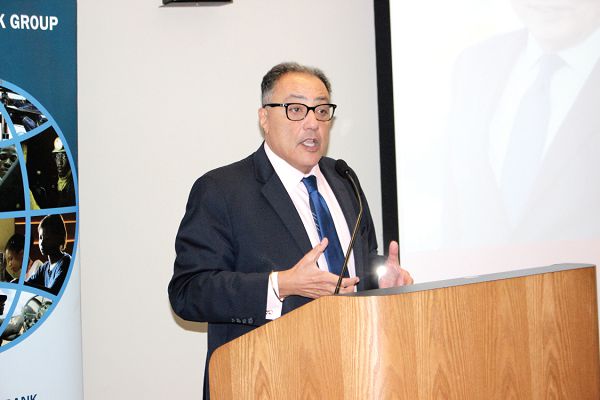Life StyleNews
Empower women to improve human capital, World Bank Vice-President tells African countries

The Vice-President of the World Bank, Dr Hafez Ghanem, has urged Ghana and African countries in general to prioritise policies that will empower women and improve on their human capital.
He stressed that Ghana and African countries in general could only achieve the Sustainable Development Goals (SDGs) and national development aspirations when they removed barriers to women empowerment.
Speaking at the launch of a World Bank report dubbed “Profiting from parity: Unlocking the potential of women’s businesses in Africa” in Accra on Wednesday, Dr Ghanem noted that African countries were poorly ranked on the Human Development Index (HDI), accounting for the last 25 countries on the rankings because much attention had not been given to girls and women’s empowerment.
He said apart from anchoring policies on increased investment in the provision of quality education and health care, there was also the need to make strategic investments in energy, agriculture and entrepreneurship to harness the potentials of women in particular for sustainable national development.
Report
The report on women’s businesses in Africa showed that there was a huge gender gap in profits made between males and females operating the same businesses.
For instance, the report showed that on the average, men made 34 per cent more in profit than women in the same business.
Touching specifically on Ghana, the report indicated that at the micro level, men made 36 per cent more profit than women who were engaged in the same business.
The gap, he said, hit the widest margin in the manufacturing sector where male business operators in the sector earned a whopping 82 per cent more in profit than female businesses in that sector.
In terms of tailoring, the gap is minimal with males operating in that industry making 20 per cent more in profit than females.
The report drew on a wealth of household and firm level data in Africa to paint a more detailed picture of female entrepreneurs and the constraints to the growth and profitability of their businesses.
Nine major factors
The report highlighted nine major factors that held back women’s business performance in Ghana and Africa in general.
For instance, it stated that legal discrimination was one of the key obstacles to the development of women’s businesses in African countries, noting that in some cases “female entrepreneurs cannot have equal economic opportunities because the laws restrict women’s ability to own and run a business.”
The report also identified social norms, risk of gender-based violence, education and skills gap and lack of access to networks and information as key hindrances to businesses operated by women.
Among the other constraints identified in the report, were lack of confidence by female businesses, low control of assets by females relative to men, lack of authority over allocation of resources and household assets, as well as time constraint for women who spent most of their time doing domestic duties.
Strategic investment
In her statement, the Second Lady, Hajia Samira Bawumia, described the findings of the report as a wake-up call for Ghana and sub-Saharan Africa to take bold steps to reverse the trend.
She noted that the continent had a huge potential to grow its human capital base by investing more in women who constituted the majority of the population, especially in Ghana.
“Empowering women entrepreneurs is smart economics but empowering girls is even smarter economics so all efforts must be made to remove barriers to women empowerment,” she stressed.
Hajia Bawumia also urged governments across Africa and the world to remain steadfast in rolling out policies that would empower women.
She called on the World Bank to align its programmes in the country to national policies to ensure proper coordination and uniformity in implementation.
Balance
The Minister of Gender, Children and Social Protection, Mrs Cynthia Morrison, encouraged young female entrepreneurs to work hard and cultivate the habit of independence to be able to succeed in business.
The World Bank Country Director for Ghana, Liberia and Sierra Leone, Mr Henry Kerali, called on civil society organisations (CSOs) to support government to implement national strategies that would help to improve the country’s HDI.
Source: Graphic.com.gh



